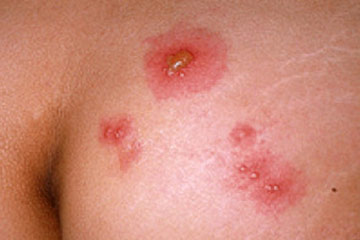Malaria. Chemoprophylaxis during Pregnancy and Breastfeeding
Malaria infection in pregnant women can be more severe than in non-pregnant women. Malaria can increase the risk for adverse pregnancy outcomes, including prematurity, spontaneous abortion, and stillbirth.
For these reasons, and because no chemoprophylaxis regimen is completely effective, women who are pregnant or likely to become pregnant should be advised to avoid travel to areas with malaria transmission if possible. If travel to a malarious area cannot be deferred, use of an effective chemoprophylaxis regimen is essential.
Pregnant women traveling to areas where chloroquine-resistant P. falciparum has not been reported may take chloroquine prophylaxis. Chloroquine has not been found to have any harmful effects on the fetus when used in the recommended doses for malaria prophylaxis; therefore, pregnancy is not a contraindication for malaria prophylaxis with chloroquine phosphate or hydroxychloroquine sulfate.
For travel to areas where chloroquine resistance is present, mefloquine is the only medication recommended for malaria chemoprophylaxis during pregnancy. In 2011, the FDA reviewed available data for mefloquine use during pregnancy and reclassified it from category C (animal reproduction studies have shown an adverse effect on the fetus and there are no adequate and well-controlled studies in humans, but potential benefits may warrant use of the drug in pregnant women despite potential risks) to category B (animal reproduction studies have failed to demonstrate a risk to the fetus and there are no adequate and well-controlled studies in pregnant women).
Because of insufficient data regarding its use during pregnancy, atovaquone-proguanil is not recommended to prevent malaria in pregnant women. Doxycycline is contraindicated for malaria prophylaxis during pregnancy because of the risk for adverse effects seen with tetracycline, a related drug, on the fetus, which include discoloration and dysplasia of the teeth and inhibition of bone growth. Primaquine should not be used during pregnancy because the drug may be passed transplacentally to a G6PD-deficient fetus and cause hemolytic anemia in utero.
Very small amounts of antimalarial drugs are excreted in the breast milk of lactating women. Because the quantity of antimalarial drugs transferred in breast milk is insufficient to provide adequate protection against malaria, infants who require chemoprophylaxis must receive the recommended dosages of antimalarial drugs listed in Table 3-10. Because chloroquine and mefloquine may be safely prescribed to infants, it is also safe for infants to be exposed to the small amounts excreted in breast milk. Although data are very limited about the use of doxycycline in lactating women, most experts consider the theoretical possibility of adverse events to the infant to be remote.
Although no information is available on the amount of primaquine that enters human breast milk, the mother and infant should be tested for G6PD deficiency before primaquine is given to a woman who is breastfeeding. Because data are not yet available on the safety of atovaquone-proguanil prophylaxis in infants weighing <5 kg (11 lb), CDC does not recommend it to prevent malaria in women breastfeeding infants weighing <5 kg. However, it can be used to treat women who are breastfeeding infants of any weight when the potential benefit outweighs the potential risk to the infant (such as treating a breastfeeding woman who has acquired P. falciparum malaria in an area of multidrug-resistant strains and who cannot tolerate other treatment options).






